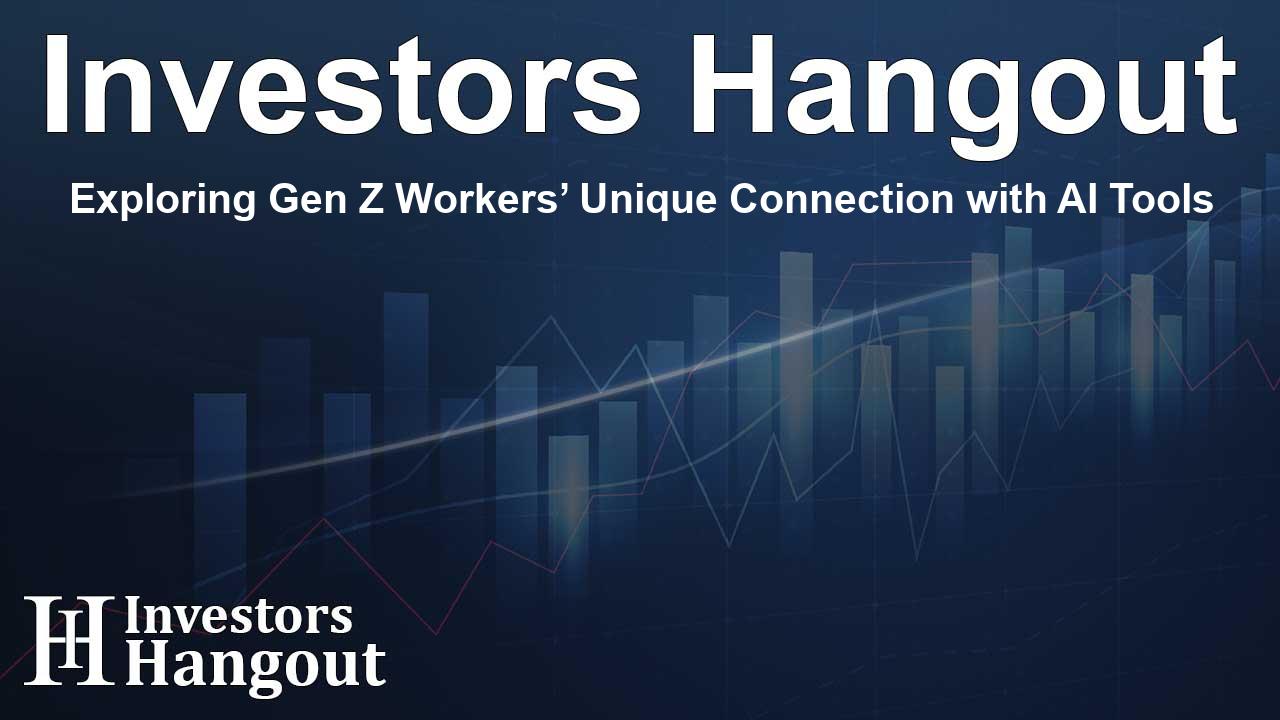Exploring Gen Z Workers’ Unique Connection with AI Tools

Understanding the Role of AI Among Gen Z Workers
The generational shift in workplace dynamics is becoming increasingly evident, particularly among Gen Z workers aged 18 to 28. Recent findings reveal fascinating insights into how this cohort utilizes AI chatbots like ChatGPT, with many indicating that these tools serve more than just professional roles; they are vital companions in their work life.
Survey Insights into AI Usage
An extensive survey conducted by Resume.org evaluated the experiences of 1,000 full-time Gen Z employees. The results show a noteworthy reliance on AI, with 77% of respondents confirming they turn to ChatGPT for assistance with work tasks. However, the study also highlights how interactions with AI can often diverge from productivity. A significant 43% of those surveyed admit to spending at least 30 minutes daily chatting with AI, with some dedicating over an hour.
Procrastination or Productivity?
Interestingly, many respondents use AI as a procrastination tool rather than merely a productivity enhancer. In fact, 42% engage in non-work conversations with AI, while 38% seek entertainment or breaks. Additionally, around 33% discuss their work-related stress, and 15% turn to ChatGPT to create an impression of busyness even when they are not actively working.
AI as a Companion and Helper
The survey reveals that for many Gen Z workers, AI chatbots are becoming a more familiar presence than many traditional colleagues. A staggering 60% report communicating with AI as much or even more than with their coworkers. This relationship becomes increasingly intriguing when 45% of respondents feel that ChatGPT knows them better than their own superiors.
A Unique Friendship
Moreover, one-third of surveyed Gen Zers have confided in AI chatbots pieces of personal information they have never previously shared with humans. This points to an evolving relationship where AI serves not only as a tool but as a confidante. About half of the respondents perceive ChatGPT as a 'tool,' yet a significant number categorizes it as a supportive assistant, friend, or even a therapist.
Shifting Information Sources
When seeking answers, 39% of respondents consult AI before even using Google. The primary reasons behind this tendency include clarity, with 63% citing it as a major factor, and 56% valuing the speed of responses. Others appreciate the privacy (29%) and judgment-free environment (33%) that AI offers, allowing them to feel more at ease when asking questions.
Insights from Career Experts
Kara Dennison, the Head of Career Advising at Resume.org, elaborates on this phenomenon, explaining that many Gen Zers entered the workforce during a time when in-person relationships were hard to establish due to remote work trends. She remarks that AI like ChatGPT provides quick, judgment-free feedback, making it feel more accessible than traditional management or peer relationships.
Conclusion and Future Implications
As interactions between Gen Z and AI tools evolve, it appears there are significant implications for workplace culture and communication methods overall. With this generation increasingly relying on technology for both professional assistance and personal conversations, the future of work may look very different than what we once knew.
Frequently Asked Questions
1. Why do Gen Z workers prefer AI chatbots like ChatGPT?
Gen Z workers appreciate the efficiency, speed, and non-judgmental nature of AI chatbots, often turning to them for both work-related and personal discussions.
2. How much time do Gen Z workers spend interacting with AI?
Many Gen Z workers report spending at least 30 minutes each day chatting with AI, with some dedicating over an hour for various reasons including procrastination.
3. What roles do AI chatbots assume according to Gen Z?
AI is commonly viewed as a tool, assistant, and even friend for many Gen Z workers, reflecting the changing perception of AI in the workplace.
4. Are AI chatbots replacing traditional workplace interactions?
While they provide significant support, many view AI chatbots as companions rather than replacements for human interactions.
5. What are the implications for the future of work with AI?
The increasing reliance on AI for support and companionship may reshape workplace communication, leading to broader changes in work culture.
About The Author
Contact Logan Wright privately here. Or send an email with ATTN: Logan Wright as the subject to contact@investorshangout.com.
About Investors Hangout
Investors Hangout is a leading online stock forum for financial discussion and learning, offering a wide range of free tools and resources. It draws in traders of all levels, who exchange market knowledge, investigate trading tactics, and keep an eye on industry developments in real time. Featuring financial articles, stock message boards, quotes, charts, company profiles, and live news updates. Through cooperative learning and a wealth of informational resources, it helps users from novices creating their first portfolios to experts honing their techniques. Join Investors Hangout today: https://investorshangout.com/
The content of this article is based on factual, publicly available information and does not represent legal, financial, or investment advice. Investors Hangout does not offer financial advice, and the author is not a licensed financial advisor. Consult a qualified advisor before making any financial or investment decisions based on this article. This article should not be considered advice to purchase, sell, or hold any securities or other investments. If any of the material provided here is inaccurate, please contact us for corrections.
